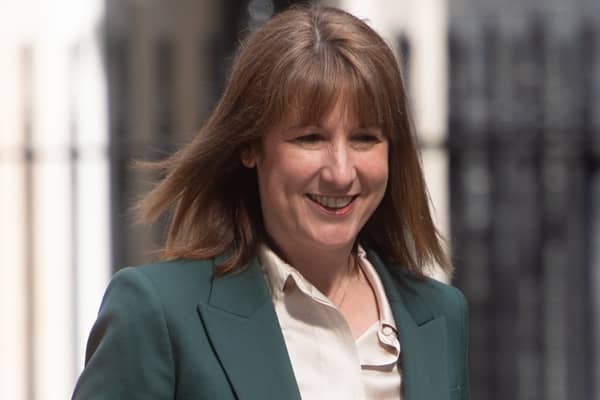The UK’s consumer price inflation rose to 3.6% in June compared to 3.4% in May according to the Office for National Statistics (ONS) on Wednesday in yet another blow for the Chancellor Rachel Reeves.
Inflation continues to rise since a three year low in September of 1.7% and the Bank of England said in their forecast it will hit 3.7%, above the central bank’s 2% target.
Andrew Bailey the Bank of England’s governor has said that interest rates will most likely gradually reduce.
Read more related news:
Firms ‘sound the alarm’ on the impact of the Chancellor’s ‘NICs and other employment costs’
Richard Heys, acting chief economist for the ONS said, “Inflation ticked up in June, driven mainly by motor fuel prices which fell only slightly, compared with a much larger decrease at this time last year.
“Food price inflation has increased for the third consecutive month to its highest annual rate since February of last year.”
The ONS said that food prices increased for the third consecutive month hitting its highest level in over a year to 4.5%.
Stuart Morrison, Research Manager at the British Chambers of Commerce (BCC) said, “With CPI rising by 3.6% in June, off the back of fuel price changes, the daily inflation headache for businesses should not be underestimated. Inflation continues to be a major external concern for the firms we represent, cited by over half of businesses in our latest survey.
“As the Bank of England Governor acknowledged at our annual conference last month, the labour market impact on inflation needs to be closely monitored. The recent employer NICs increase has significantly weakened business sentiment, and hiring may suffer as a result.
“The Bank of England will need to consider carefully further interest rate cuts before the labour market loosens too much. Firms will be watching that delicate balancing act intently.
“Easing cost pressures on business is a crucial piece of the jigsaw to help control inflation. A clear tax roadmap, which includes national insurance, would give firms the certainty they need to plan their investment. Our Blueprint for Growth, published last month, details other practical policies we believe can drive forward the UK economy.”
Tamsin Powell, Consumer Finance Expert at Creditspring said, “For many households, another rise in inflation will be unsettling, when finances are already stretched to cover the basics.
“While core inflation may seem like a technical number, the reality is that everyday costs like groceries, energy bills and transport have crept up again, but wages and savings haven’t kept pace.
“That leaves many with little to no buffer to absorb an unexpected bill, like a boiler breakdown, car repairs, or covering childcare over the summer holidays.
“This is where support matters. At Creditspring, we see every day the real impact inflation has on people’s lives, not in economic stats, but in the daily trade-offs members are forced to make when they don’t have room in their budgets for these expenses.
“Short-term, affordable credit can be a vital safety net when those unplanned costs hit, and our focus is helping people stay afloat when the unexpected happens, without pushing them into unmanageable debt.”

